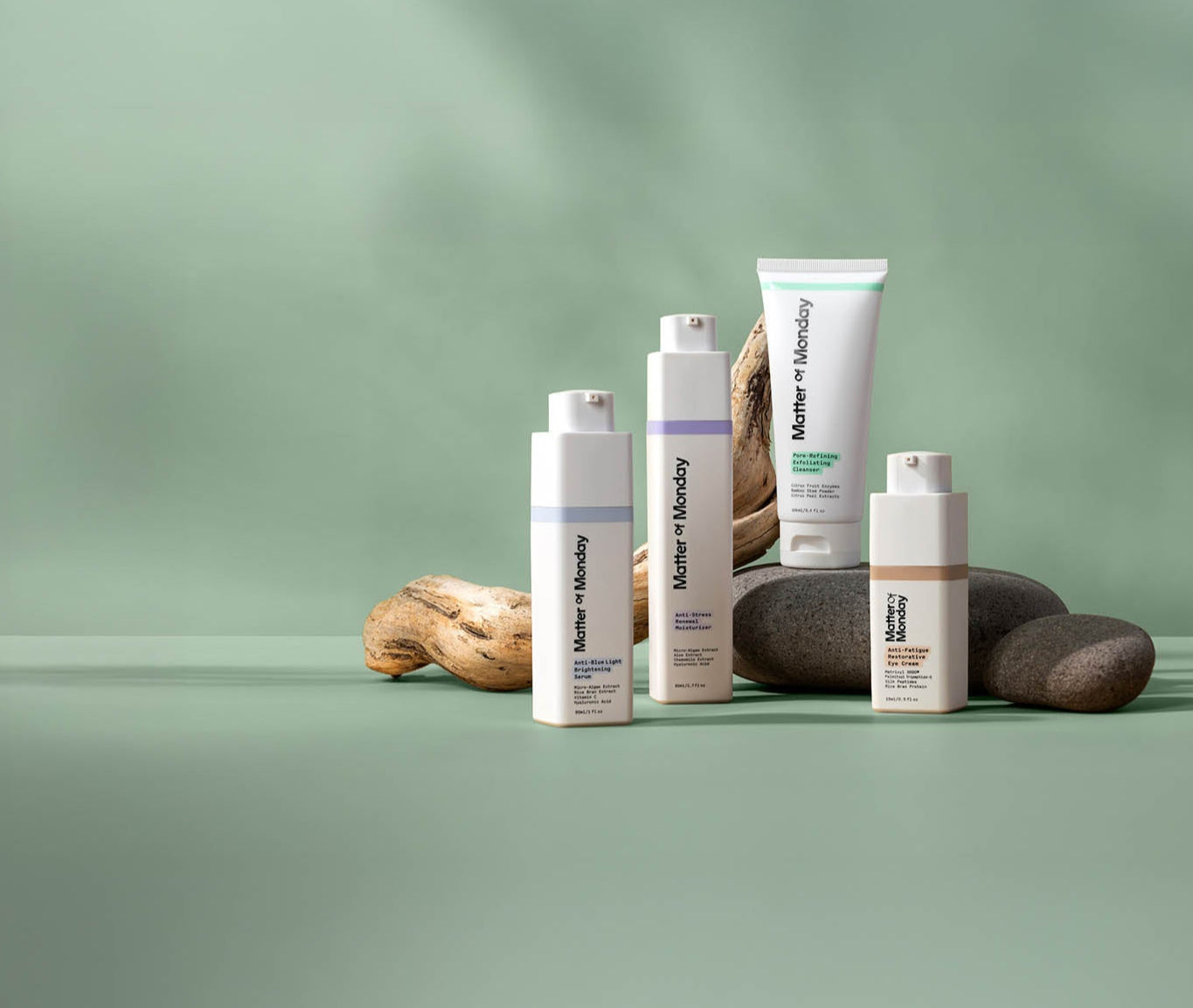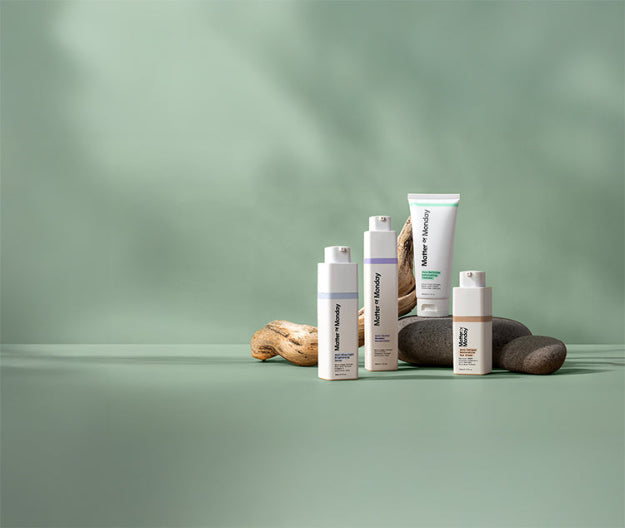Your skin works hard to keep you looking and feeling your best, but stress can throw it completely off balance. Your face often becomes the first visual diary of your stress level. When your skin is stressed, it sends out warning signs that something isn’t right. Understanding these signs is the first step in giving your skin what it needs.
Stress affects your skin from the inside out, impacting its ability to repair and protect itself. Taking care of stressed skin isn’t just about treating the symptoms; it’s about understanding what’s causing the imbalance. With the right products, habits, and self- care, you can bring your skin back to its happy, healthy state. Paying attention to how your skin looks and feels will guide you in making the changes it needs. A little extra care can go a long way toward restoring your glow.
What Does “Stressed Skin” Mean?
Stressed skin happens when your skin’s balance is disrupted by internal or external factors. This imbalance leaves your skin struggling to function properly.
External factors like pollution, harsh weather, or overusing skincare products can overwhelm your skin’s natural defenses. These environmental stressors weaken your skin barrier, leaving it vulnerable to damage. However, internal factors like lack of sleep, poor diet, and emotional stress can also contribute. When your body feels stressed, it produces hormones like cortisol, which can trigger inflammation and increase oil production.
Stress impacts your skin’s ability to repair and protect itself, often leading to dullness and uneven texture. Additionally, when skin is under stress, it may age faster due to collagen breakdown. This combination of factors makes it harder to maintain that healthy, radiant look. Understanding these triggers is the first step to calming and supporting your skin.
Recognizing the signs that your skin is stressed can help you take action before it worsens. By identifying what’s causing the imbalance, you can adjust your routine to soothe and protect your skin.
Acne and Breakouts: Stress Taking Its Toll
Stress and breakouts often go hand in hand, and it’s no coincidence. When you’re stressed, your body produces cortisol, a hormone that affects your skin. Cortisol increases oil production, which can clog your pores and lead to breakouts. Additionally, this excess oil creates the perfect environment for acne-causing bacteria to thrive, making stress a common trigger for pimples and inflammation.
This inflammation can make acne worse and slow down your skin’s ability to heal. As a result, blemishes may take longer to fade, leaving marks or uneven texture behind. Additionally, stress-related picking or touching your skin can further irritate it, causing more harm.
However, stress doesn’t just stop at increasing oil. It also disrupts your skin’s natural barrier, making it harder to fight off irritation. This can lead to redness, swelling, and deeper, more painful breakouts. If you’ve noticed stubborn or sudden blemishes, it could be one of the signs that your skin is stressed. Over time, chronic stress can even worsen existing acne, making flare-ups more frequent or severe.
Dryness and Dehydration: A Key Sign of Skin Stress
Dryness and dehydration are some of the most noticeable signs that your skin is stressed. Stress impacts your skin’s moisture barrier, which is responsible for keeping hydration locked in. When this barrier weakens, moisture escapes, leaving your skin dry, flaky, and uncomfortable. Additionally, external stressors like cold weather or harsh products can worsen the problem, making it harder for your skin to retain moisture.
Dehydration doesn’t just affect how your skin feels; it also changes how it looks. When skin lacks hydration, it often appears dull and uneven. However, this lack of moisture can also emphasize fine lines and texture, giving your complexion a tired, worn-out appearance. You might notice that your usual products don’t absorb as well, which is another sign your skin’s barrier needs extra care.
Sensitivity and Redness: When Skin Reacts Under Pressure
When your skin is stressed, it often becomes more sensitive and reactive. Stress weakens your skin’s natural barrier, leaving it vulnerable to irritants. As a result, you might notice redness, itching, or general discomfort that wasn’t there before. Additionally, environmental factors like pollution or harsh weather can make stressed skin even more reactive.
Redness is one of the most common signs that your skin is stressed. It often occurs because stress triggers inflammation, making your skin look flushed or uneven. If you have conditions like rosacea, stress can cause flare-ups, intensifying redness and irritation. However, even if you don’t typically deal with sensitivity, stress can create new reactions that feel out of the ordinary.
Inflamed skin also struggles to recover as quickly. This means redness and irritation can linger longer than usual, making your skin feel consistently off. Additionally, products that you normally tolerate may suddenly cause stinging or burning, as your stressed skin overreacts to ingredients. Recognizing these changes is important for adjusting your skincare routine and helping your skin heal.

How to Soothe Stressed Skin and Restore Balance
When your skin is stressed, taking steps to calm and restore balance is essential. Start by simplifying your skincare routine with gentle products. Avoid harsh cleansers or exfoliants that can irritate your skin further. Instead, opt for hydrating and soothing ingredients that help rebuild your skin’s barrier. Additionally, using products with calming properties, like aloe or chamomile, can reduce redness and discomfort.
Hydration plays a huge role in soothing stressed skin. Make sure to drink plenty of water and use a moisturizer that locks in moisture. Look for formulas with hyaluronic acid or ceramides to repair and protect your skin. Anti-Stress Renewal Moisturizer from Matter of Monday has key ingredients such Aloe Extract, Chamomile Extract, Micro Algae, Jojoba Oil, Shea Butter and Hyaluronic Acid that calm the stress induced inflammation, deeply hydrate the skin and protect the skin barrier against stress invasion.
Rest and self-care are equally important when addressing signs that your skin is stressed. Stress management techniques, such as meditation or light exercise, can help lower cortisol levels that contribute to inflammation. Additionally, getting enough sleep gives your skin time to repair and regenerate. Incorporating relaxation into your routine benefits your skin and overall well-being.
Bottom Line
Taking care of your skin when it’s stressed is about listening to its needs and making thoughtful adjustments to your routine. Recognizing the signs that your skin is stressed allows you to take action before the issues worsen.
By pairing gentle products with mindful self-care and hydration, you can help your skin recover faster. With consistent care and attention, your complexion will feel calm, nourished, and ready to take on the day. It’s all about giving your skin the love it needs to bounce back.









